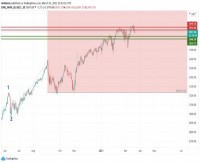|
Opalesque Industry Update - Managing Partners Limited, the boutique fund manager, believes that the use of performance fees in many of the funds that invest in traded life policies poses a moral hazard. Research by MPL shows that seven of the 11 sterling-denominated traded life policy funds share classes actively distributed in the UK impose performance fees. These fees can be as high as 30% above annual returns of 6.5%. Traded life policies (TLPs) are US-issued whole of life sold before their maturity date to allow the original owners to enjoy some of the benefits during their own lifetimes. TLPs can be used to deliver steady, incremental returns that are uncorrelated to other asset classes, provided they are used in funds that carry out the right actuarial analysis and risk controls. MPL, which manages the Traded Policies Fund, says that because of the nature of TLPs, they are principally open-ended vehicles with buy and hold strategies. This lends such funds, quite rightly, to using a mark to model basis i.e. they use a unit pricing model that gives present values to TLP assets on the assumption they will be held to maturity. Jeremy Leach, Managing Director at MPL, commented, “A moral hazard arises if you have fund managers that are marking to model and awarding themselves performance fees because a manager could potentially sway the returns. To be charging a performance fee on an asset class offering 9-10% per annum then charging hedge fund style fees seems a little inappropriate because the only way to achieve alpha with this asset class is by having conservative fees, working on a buy and hold strategy and not charging performance fees. “If a fund manager is charging a performance fee then the basis of the performance must be questioned. Investors and their advisers should be looking to invest in funds that have transparent and fair initial and annual charges only, use the right risk controls and buy policies based on prudent actuarial analysis.” Professor Merlin Stone, of Oxford Brookes University and author of The Market for traded life policies, published in August this year, told a roundtable debate on TLP funds held in September that performance fees are “dangerous”. He said the biggest plus in achieving performance is careful acquisition of policies and good interpretation of longevity and realistically, annual returns that can be achieved in TLP funds are between 8% and 10%. He said: “A good fund will be at the top end of that range while a weak fund, in which the mortality calculations are wrong, could actually be negative. But these are the kind of returns you can expect from a competitive market in a relatively safe asset class that is less safe than cash but still safer than equities.” Russell Golledge, an IFA for Crystal Financial Management, of Clacton on Sea, Essex, who also spoke at the roundtable discussion, said that his firm does sometimes use investment funds with performance fees. But he added: “The problem with TLP funds is that we don’t always know what the managers are doing or what the funds are actually worth. They all seem to do 8-10%, with no variation. Why do they all stick to this 10%? The manipulation of valuation models concerns us.” MPL’s Traded Policies Fund’s GBP Growth share class, which is suitable for UK retail investors, returned 9.08% over the 12 months to 1 November 2010 and 38.05% since it was launched on the 15th of March 2007, net of all charges. Its performance makes the Fund one of the outstanding performers over a period that has seen many investment funds suffer substantial losses as a result of the global financial crisis, which impacted all of the main asset classes. The Traded Policies Fund uses a mark to model valuation basis but does not charge performance fees. It offers institutional and retail share classes denominated in Sterling, Euro, USD, Yen and Swedish krona. The Traded Policies Fund is a fully-regulated Cayman Islands mutual fund that can be included in personal portfolio bonds, wraps and SIPPs. The minimum direct investment in the fund is £35,000 (or currency equivalent) but the fund can also be accessed via insurance bonds or SIPPs for £2,500. Corporate website: Source
|
Industry Updates
MPL says use of performance fees in life settlement funds is 'moral hazard'
Thursday, November 25, 2010
|
|





 RSS
RSS







